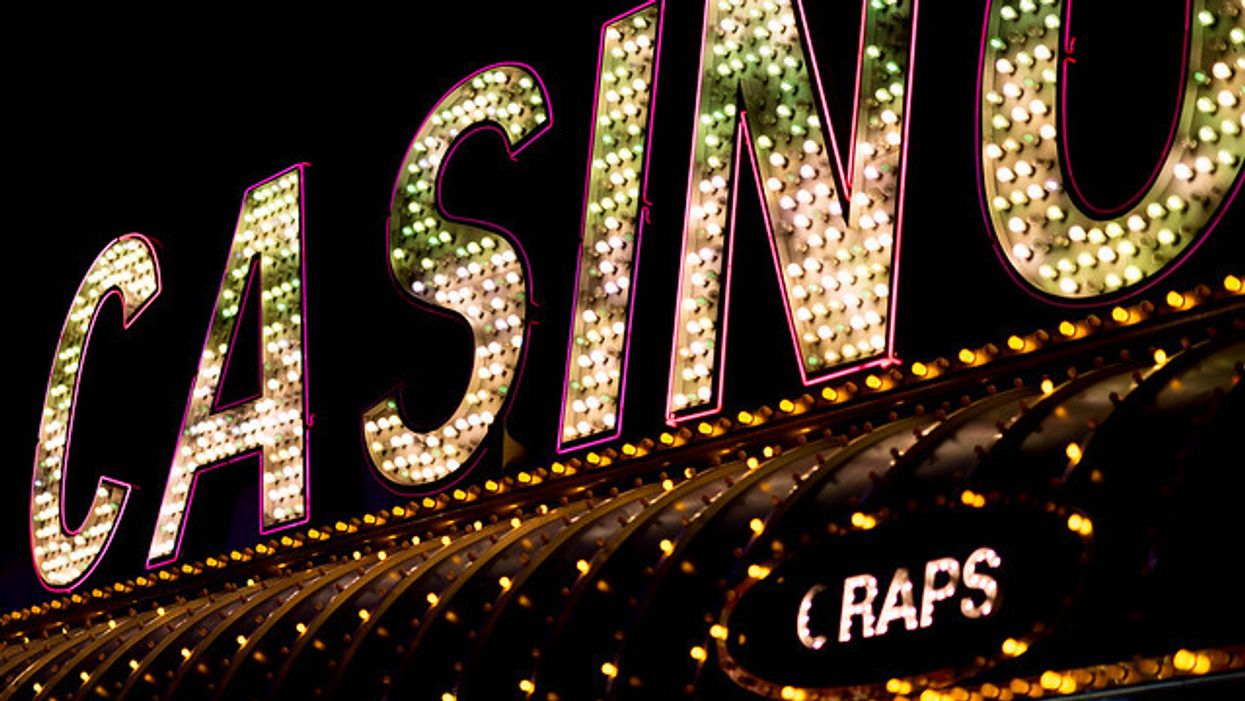In Reopening Casinos, The Virus Is The Dealer
Those who wagered on a visit to Las Vegas confronted mixed messages on mask wearing, to say the least.
Casino guests had to wear face coverings at tables and card games if there were no shields between dealers and each player. Other gamblers were encouraged to wear masks but didn't have to. Casino employees were ordered to wear masks, however.
Caesars Entertainment was paying guests at its five Vegas casinos $20 to wear masks — if they were Caesars Rewards members. You've gotta salute a customer loyalty program that turns protecting your life into another perk.
Nevada Gov. Steve Sisolak just did what had to be done. He's ordered everyone in public, including in casinos, to wear face masks.
Requests to wear masks but not rules requiring it may appeal to authorities afraid to lay down the law. We are seeing the sad results in a number of states suffering spikes in coronavirus cases — among them Florida, Arizona, Texas, California and Nevada. These are places where the absurd politics of masks have framed this simple means to curb a highly infectious disease as some plot to take away personal freedom.
Of course, such half-in, half-out policies are futile in a pandemic. It's a fair guess that those who won't wear masks are the same people who've been hanging around bars and crowded beaches, breathing on others and being breathed upon. To urge people to voluntarily wear masks says to the public, "We know that it helps prevent the spread of the coronavirus but that you nonetheless will not be protected from others."
There's been this mistaken notion that the virus was a threat mainly in high-density parts of the country — places like New York and Chicago — and not in America's open spaces. As current numbers show a sharp decline in New York's infection rate and sharp spikes in the heartland, the bigger threat may be weak leadership.
It turns out that churches and casino floors can be densely populated enclosed spaces no matter where they're located. On a Saturday night, a cowboy bar on a country road can be as packed as a New York subway car. The difference is people on the subway are wearing masks.
In an unforgettable CNN interview in early May, Las Vegas Mayor Carolyn Goodman offered up the people of Las Vegas as a "controlled group" to show what happens when an economy reopens at the height of a pandemic. Goodman accused a shocked Anderson Cooper of being "alarmist."
Perhaps suggesting that densely populated cities were at risk in a way Las Vegas wasn't, Goodman noted, "I grew up in the heart of Manhattan. I knew what it's like to be in subways and on buses." As for social distancing, she said it's the job of businesses, not mayors, "to figure it out."
What could possibly go wrong?
Las Vegas started reopening on May 9. There were, and still are, regulations for social distancing, but by opening so early and not requiring face masks, the coronavirus case load was bound to soar. And it has.
Tourists are apparently not rushing off to Vegas. "We've got a health crisis that has created an economic crisis," Steve Hill, head of the Las Vegas Convention and Visitors Authority, said, "and the real key to fixing all this is to solve these health issues."
He is right. The theory that needs discarding is that you can pretty much ignore a deadly pathogen on the loose — or accept the virus' spread as the price of preserving the economy.
That's not how it worked out in Las Vegas. Vegas may be a place where crowds go to gamble, but clearly not if the stakes are too high.
Follow Froma Harrop on Twitter @FromaHarrop. She can be reached at fharrop@gmail.com. To find out more about Froma Harrop and read features by other Creators writers and cartoonists, visit the Creators webpage at www.creators.com.









Trump Cabinet Nominee Withdraws Over (Sane) January 6 Comments